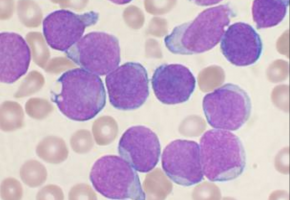
Scientists at St. Jude Children's Research Hospital and Princess Margaret Cancer Centre in Toronto, Canada, have reported that subpopulations of leukaemic cells present at diagnosis can cause relapse in children with acute lymphoblastic leukaemia.
The findings have implications for current and future therapy.
The work recently appeared as an advance online publication in Cancer Discovery.
While there have been significant advances in the treatment of ALL, the disease recurs in 15-20% of paediatric and 40-75% of adult patients.
Prognosis for patients who relapse is poor.
Treatment for ALL eliminates some leukaemia cells, while others survive and progress to relapse; but why this happens has remained a key question in cancer research.
There are distinct populations of ALL cells called subclones, whose behaviour and properties differ from their fellow leukaemia cells in part based on their underlying genetics.
Researchers identified and isolated subclones, present at diagnosis, that somehow survive therapy and eventually initiate relapse.
The scientists called these cells diagnosis relapse initiating clones, or dRI.
"We didn't just want to do a genetic analysis; we wanted to understand what the precise clonal hierarchy looks like to get a better understanding of when relapse arises and how it can be affected by treatment," said co-senior author Charles Mullighan, M.D., MBBS, of the St. Jude Department of Pathology.
"This work helped us show that treatment-resistant clones may be present at diagnosis, before treatment commences, and to determine how these subclones at diagnosis behave during therapy."
The researchers conducted advanced genomic and transcriptomic analysis on the cells.
Results showed that dRI clones have increased tolerance to standard chemotherapy.
Findings also show that dRI clones have alterations in epigenetic, metabolic and pro-survival pathways that provide new avenues for overcoming resistance.
In addition to advanced genomic and transcriptomic analysis, the researchers relied on sophisticated modelling with patient-derived xenografts to conduct this study.
The scientists created the models using differing doses of leukaemia cells in mice.
This increased their ability to capture rare subclones in the models.
This step was instrumental in showing the existence of subclones at diagnosis that harbour latent or relapse-specific genetic variants.
"Xenografting added considerable new insight into the evolutionary fates and patterns of subclones obtained from diagnosis samples," said co-senior author John Dick, Ph.D., senior scientist at Princess Margaret Cancer Centre, professor of molecular genetics at the University of Toronto, and scientific co-leader of the Acute Leukemia Translational Research Initiative at the Ontario Institute for Cancer Research.
"We were able to gather extensive information about the genetics of the subclones from our models, which helped us describe the trajectories of each subclone and the order in which they acquired mutations. With such subclones isolated by xenografting, we could go on to examine the reasons why these subclones uniquely could both survive therapy and regenerate relapse disease."
The research described in the Cancer Discovery paper is a companion study to work published in Blood Cancer Discovery in January 2020.
The Blood Cancer Discovery paper described the genomic landscape, patterns and mechanisms of clonal evolution from diagnosis to relapse in 92 patients on the Total Therapy protocols for ALL treatment at St. Jude.
Together, these papers provide an integrated genomic and functional approach to describing the underlying genetics and mechanisms of relapse for ALL.
These findings have important implications for the clinical care of patients with ALL.
When clinicians know that a patient is at risk of relapse, they can increase treatment up-front to try to prevent relapse.
Additionally, knowing which subpopulation of cells is going to drive the relapse provides a clue for developing new treatment approaches.
Source: St Jude's
We are an independent charity and are not backed by a large company or society. We raise every penny ourselves to improve the standards of cancer care through education. You can help us continue our work to address inequalities in cancer care by making a donation.
Any donation, however small, contributes directly towards the costs of creating and sharing free oncology education.
Together we can get better outcomes for patients by tackling global inequalities in access to the results of cancer research.
Thank you for your support.